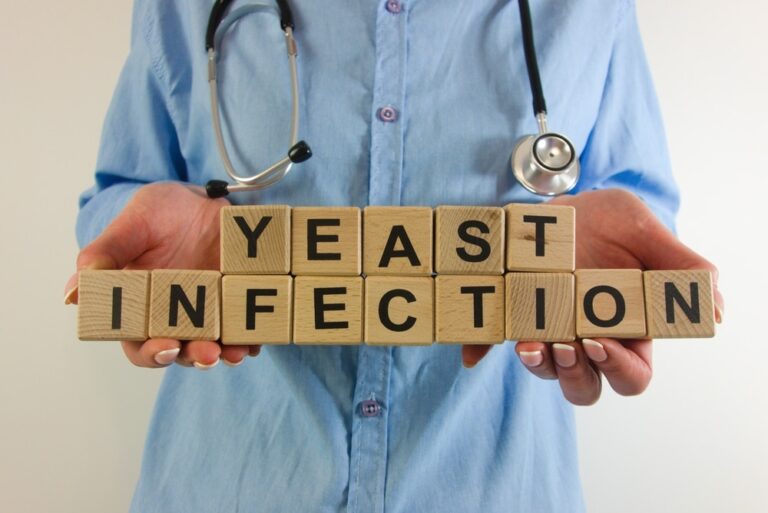There is strong evidence that systemic fungal infections – infections that affect the body’s organs and tissues – have increased dramatically in both frequency and severity in recent years due to the human immunodeficiency virus epidemic and the widespread availability and overuse of antibiotics. It is therefore imperative that we understand how to help the body protect itself against fungal infections such as Candida albicans.
Do I have a vaginal yeast infection or something else?
The fungus candida causes fungal infections. Candida naturally lives in the vagina. Normally, bacteria in the vagina keep the yeast in balance. But if the yeast gets out of balance with the bacteria and grows too much, you can get an infection.
Candida belongs to the Saccharomycetes class in the kingdom of fungi. Yeasts live virtually everywhere on the planet and can obtain their nutrients from most organic sources. This means that anything that lives or has lived can support yeast. Given the right conditions for growth and replication, yeast is capable of almost explosive growth.
Candida lives in everyone and promotes the absorption and digestion of nutrients. It rarely takes over the entire body, but when it does happen the consequences are dire. It can only reach such a disproportionate state if the environment for its growth is excellent, and if the body’s defense mechanisms are severely compromised or lacking.
Candida is an opportunistic fungus, not a pathogenic fungus. It can live in your body without causing any problems until an opportunity arises for it to become active. This is more likely to happen if your immune system is compromised: if you are exhausted, stressed or poorly nourished, or if your internal control system (the healthy bacteria in the gut) is depleted or damaged, as happens after taking antibiotics or steroids.
When we are sick, we experience the unpleasant symptoms of the disease. However, symptoms are signs that the body is fighting the real cause of the condition. For example, if you have an infection, your temperature usually rises, which is a clear sign that your immune system is fighting the infection. It is important to understand the symptoms and not fight them, but deal with the underlying cause of the disease. Consider the many symptoms of digestive problems, ranging from heartburn to bloating, constipation or diarrhea. There are medications that will relieve these symptoms, but such medications will not treat the underlying causes of the digestive problem and will often make matters worse in the long run.
There is one constant trend through disease and health, and that is the self-healing, self-regulating, homeostatic tendencies of the body. Your many interacting body systems (including the immune system) are constantly striving for homeostasis. Heal cuts; breaks mend; infections are self-limiting (usually without outside help). Diarrhea and vomiting are the body’s ways of removing toxins. Rather than masking these symptoms, we need to learn to recognize and understand the body’s self-regulation message to find out what’s causing them. We also need to be aware of the many things we do that can aggravate and tax the body’s immune systems, hindering both healing and recovery.
When it comes to infections, the ideal outcome is for the bacteria, virus or yeast to become contained and overwhelmed by the body’s homeostatic defenses. Unfortunately, when your self-healing mechanisms have to deal with too many demands of life at the same time, they will not always succeed in overturning the infection. The following factors should be taken into account:
- Are you getting enough essential nutrients through your diet?
- Do you eat refined carbohydrates and sugars?
- Do you exercise enough?
- Have you contracted a viral or fungal infection that never seems to go away completely?
- Are you sleeping well?
- Are you experiencing work or emotional stress?
- Do you have a mild hormonal imbalance?
- Do you have a history of antibiotic use?
- Are you taking birth control pills?
Each of these stressors may be relatively minor and can be addressed or eliminated by eating more sensibly, improving exercise and sleep patterns, doing something positive about the emotional stress, or getting advice and treatment for the hormonal, viral and yeast problems. But if nothing is done and these various adaptive demands continue, the body’s defense and repair systems eventually become so overloaded that chronic symptoms are likely to occur.
Essentially there are only three solutions:
- Reduce adaptive demands – stop and reverse the factors that cause the demands that overwhelm the body’s ability to cope.
- Focus on methods that repair and support systems of the body so that they can efficiently handle the loads they face.
- If the right changes are made, the homeostatic defense systems should be able to work more efficiently again to detoxify, fight infections, rebuild and repair – and symptoms should gradually subside.
Because the symptoms of so many other conditions resemble a yeast infection, it is better to see a gynecologist or other doctor for diagnosis and treatment, especially if you have never had one of these infections before. Your doctor can perform tests to confirm which condition you have. If you do have a yeast infection, they may prescribe an antifungal medication that is stronger than the medications you can buy without a prescription.

